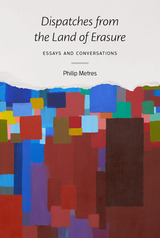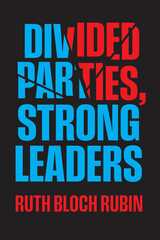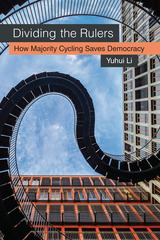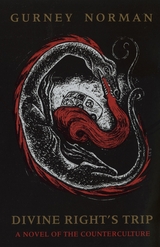3 books about Tax planning

The Complete Cardinal Guide to Planning for and Living in Retirement
Hans "John" Scheil
Tupelo Press, 2016
The financial complexities we face in retirement can be daunting. The landscape of Social Security, Medicare, insurance, benefits, investments, and planning for long-term care presents many choices, challenges, and opportunities. The Complete Cardinal Guide gives you the tools you need to understand how to make informed decisions that are right for you. The purpose of this book is to guide you through the major retirement options that retirees face. It explains simple and effective strategies you can put in place now, with the help of professionals, to make your retirement financially successful. Author and founder of Cardinal Retirement Planning Hans “John” Scheil, a Certified Financial Planner™ (CFP®) and Chartered Advisor for Senior Living (CASL®), calls upon his 40 years of experience in the business to answer the following questions in depth, and he illustrates each with real-life stories: At what age should I start receiving my Social Security check?, What’s the best way to supplement my Medicare coverage?, Can I receive long-term care and stay at home? How do I afford it? ,How should I handle my IRA and/or 401k accounts?, What’s a smart investment strategy for financing my retirement years?, How do my income taxes change after I retire?, What if I live longer than my retirement savings last?, What’s the best way to transfer my life insurance and other assets to my children and grandchildren?, How do I ensure my survivors are OK after I die?,How should I approach choosing financial and legal professionals to help me plan my retirement?
[more]
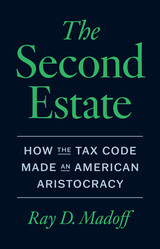
The Second Estate
How the Tax Code Made an American Aristocracy
Ray D. Madoff
University of Chicago Press, 2025
A revelatory book that lifts the curtain on America’s most consequential public deception: how the rich get richer using tools the government gave them.
Amid conflicting narratives about the drivers of wealth and inequality in the United States, one constant hovers in the background: the US tax code. No political force has been more consequential—or more utterly opaque—than the 7,000-page document that details who pays what in American society and government. Most of us have a sense that it’s an unfair system. But does anyone know exactly how it’s unfair?
Legal scholar Ray D. Madoff knows. In The Second Estate, she offers an unprecedented look behind the scenes of America’s byzantine system of taxation, laying bare not only its capacity to consolidate wealth but also the mechanisms by which it has created two fundamentally separate American societies: the working Americans who pay and the ultra-rich who benefit.
This is not a story of offshore accounts or secret tax havens. In The Second Estate, Madoff shows that the US system itself has, over time, been stripped and reconstituted such that it now offers a series of secret paths, hidden in plain sight, for wealthy people in the know to avoid taxation altogether. Through the strategic avoidance of traditional income, leveraging of investments and debt, and exploitation of rules designed to promote charitable giving, America’s wealthy do more than just pay less than their share; they remove themselves from the tax system entirely. Wealth becomes its own sovereign state, and the living is surprisingly—and maddeningly—cheap.
Amid conflicting narratives about the drivers of wealth and inequality in the United States, one constant hovers in the background: the US tax code. No political force has been more consequential—or more utterly opaque—than the 7,000-page document that details who pays what in American society and government. Most of us have a sense that it’s an unfair system. But does anyone know exactly how it’s unfair?
Legal scholar Ray D. Madoff knows. In The Second Estate, she offers an unprecedented look behind the scenes of America’s byzantine system of taxation, laying bare not only its capacity to consolidate wealth but also the mechanisms by which it has created two fundamentally separate American societies: the working Americans who pay and the ultra-rich who benefit.
This is not a story of offshore accounts or secret tax havens. In The Second Estate, Madoff shows that the US system itself has, over time, been stripped and reconstituted such that it now offers a series of secret paths, hidden in plain sight, for wealthy people in the know to avoid taxation altogether. Through the strategic avoidance of traditional income, leveraging of investments and debt, and exploitation of rules designed to promote charitable giving, America’s wealthy do more than just pay less than their share; they remove themselves from the tax system entirely. Wealth becomes its own sovereign state, and the living is surprisingly—and maddeningly—cheap.
[more]
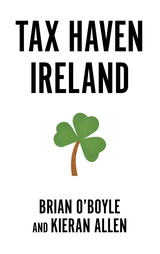
Tax Haven Ireland
Brian O’ Boyle
Pluto Press, 2021
This is the story of how a small island on the edge of Europe became one of the world’s major tax havens. From global corporations such as Apple and Google, to investment bankers and mainstream politicians, those taking advantage of Ireland’s pro-business tax laws and shadow banking system have amassed untold riches at enormous social cost to ordinary people at home and abroad.
Tax Haven Ireland uncovers the central players in this process and exposes the coverups employed by the Irish state, with the help of accountants, lawyers, and financial services companies. From the lucrative internet porn industry to corruption in the property market, this issue distorts the economy across the state and in the wider international system, and its history runs deep, going back the country’s origins as a British colonial outpost.
Today, in the wake of Brexit and in the shadow of yet another economic crash, what can be done to prevent such dangerous behaviour and reorganize our economies to invest in the people? Can Ireland – and all of us – build an alternative economy based on fairness and democratic values?
Tax Haven Ireland uncovers the central players in this process and exposes the coverups employed by the Irish state, with the help of accountants, lawyers, and financial services companies. From the lucrative internet porn industry to corruption in the property market, this issue distorts the economy across the state and in the wider international system, and its history runs deep, going back the country’s origins as a British colonial outpost.
Today, in the wake of Brexit and in the shadow of yet another economic crash, what can be done to prevent such dangerous behaviour and reorganize our economies to invest in the people? Can Ireland – and all of us – build an alternative economy based on fairness and democratic values?
[more]
READERS
Browse our collection.
PUBLISHERS
See BiblioVault's publisher services.
STUDENT SERVICES
Files for college accessibility offices.
UChicago Accessibility Resources
home | accessibility | search | about | contact us
BiblioVault ® 2001 - 2025
The University of Chicago Press


